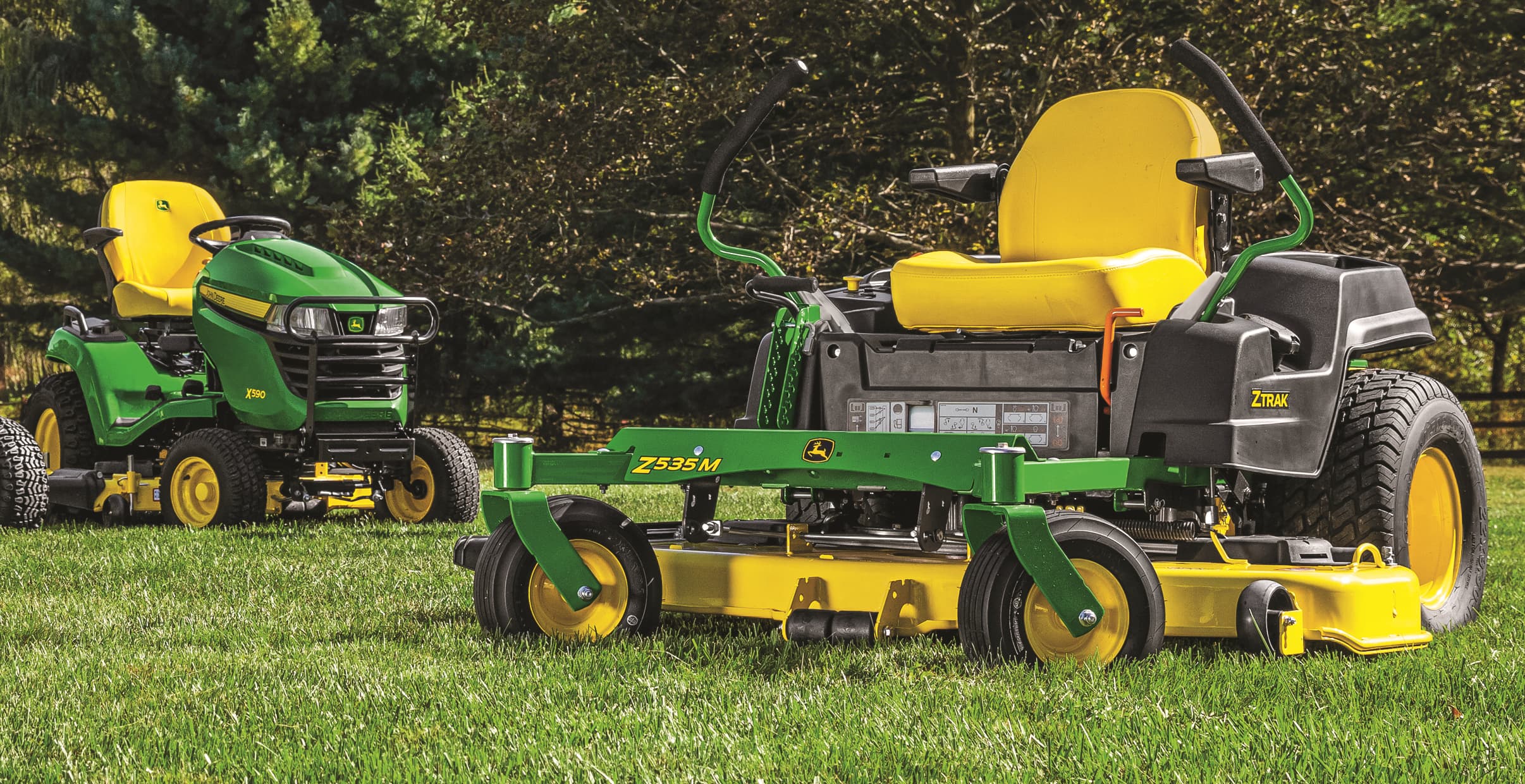This post may contain affiliate links which means I may receive a commission for purchases made through links. Learn more on my Private Policy page.
When it comes to maintaining your farm, choosing the right type of mower is crucial for achieving efficient and effective results. With a wide array of options available, it can be overwhelming to navigate through the choices. From riding mowers to rotary mowers, each type has its own features and benefits. By considering the size of your farm, terrain, and specific needs, you can make an informed decision that ensures a well-manicured and healthy landscape. So, let’s explore the factors to consider and tips to help you choose the perfect mower for your farm!
Size and Terrain of Your Farm
Assessing the Size of Your Farm
When choosing a mower for your farm, it’s important to assess the size of your farm. Consider the total land area you need to maintain, including both grassy areas and any rough terrains or thick vegetation. By determining the size of your farm, you can narrow down the options and select a mower that will efficiently and effectively meet your needs.
Analyzing the Terrain of Your Farm
Another crucial factor to consider is the terrain of your farm. Is your land mostly flat, or does it include slopes, hills, or uneven surfaces? Take note of any obstacles or challenges that your mower may need to navigate, such as trees, flowerbeds, or fences. Understanding the terrain will help you determine the type of mower that is suitable for your farm’s specific landscape.
Types of Mowers
Riding Lawn Mowers
Riding lawn mowers are a popular choice for larger farms. They are equipped with a seat and steering wheel, allowing you to comfortably mow your land while seated. Riding mowers come in various sizes and power options, making them suitable for different farm sizes and terrains. They are generally more efficient and can cover a larger area in less time compared to other types of mowers.
Zero-Turn Lawn Mowers
Zero-turn lawn mowers offer excellent maneuverability and are ideal for farms with intricate landscapes and tight spaces to navigate. These mowers can make sharp turns without leaving any uncut areas, thanks to their unique steering mechanism. Zero-turn mowers are designed to provide superior control and precision, making them a popular choice for both residential and commercial farms.
Garden Tractors
Garden tractors are versatile machines that are not only capable of mowing large areas but can also perform various other tasks around the farm. They often come with attachments and accessories, such as snow blowers, tillers, and trailers, allowing you to tackle a wide range of farm maintenance projects. Garden tractors are generally more powerful than riding mowers and are an excellent option for those seeking versatility.
Push Lawn Mowers
For smaller farms or areas that are not easily accessible with larger mowers, push lawn mowers are a practical choice. These manual mowers require physical effort to operate, but they are lightweight and maneuverable. Push mowers are suitable for maintaining smaller sections of land and can be an environmentally friendly option as they do not require fuel or electricity to operate.
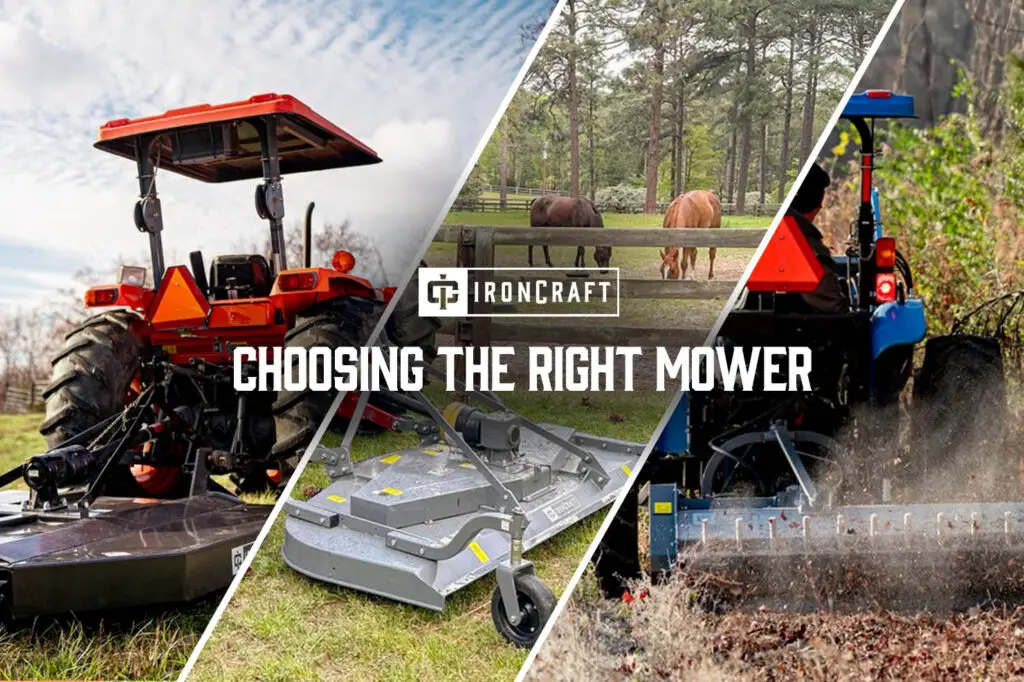
This image is property of www.ironcraftusa.com.
Considerations for Riding Lawn Mowers
Power Source
Riding lawn mowers can be powered by either gasoline engines or electric motors. Gasoline-powered mowers provide more power and are suitable for larger farms, while electric mowers are quieter, produce zero emissions, and require less maintenance. Consider your farm’s size, your preference for fuel type, and the availability of charging or refueling options when choosing a power source for your mower.
Deck Size and Cutting Width
The deck size and cutting width of a riding mower significantly impact its efficiency and mowing ability. A larger deck size and cutting width allow you to cover more ground with each pass, reducing the overall mowing time. However, it’s important to consider your farm’s terrain and any potential obstacles. A larger deck size may be more challenging to maneuver in tight spaces.
Turning Radius
The turning radius refers to the radius of the circle that a mower can make while turning. A smaller turning radius indicates better maneuverability. If your farm has many obstacles or narrow pathways, a mower with a small turning radius will be easier to navigate around these obstacles and provide optimal control.
Transmission Type
Riding lawn mowers generally come with either a manual transmission or an automatic transmission. Manual transmissions require you to shift gears manually, providing more control over speed and power. On the other hand, automatic transmissions offer convenient operation, as they automatically adjust the speed based on the terrain. Consider your personal preference and the level of control you desire when selecting a transmission type for your mower.
Factors to Consider for Zero-Turn Lawn Mowers
Steering Mechanism
Zero-turn mowers are equipped with a dual-lever or joystick steering mechanism. Dual-lever systems allow you to control each drive wheel independently, offering exceptional maneuverability. Joystick steering provides a more intuitive and effortless operation. Consider your comfort and experience level when selecting a steering mechanism for your zero-turn mower.
Comfort and Ergonomics
Since zero-turn mowers require the operator to stand while mowing, consider the comfort and ergonomics of the mower. Look for features such as adjustable seats, armrests, and vibration reduction systems. Additionally, ensure that the mower’s controls are within easy reach and the overall design promotes a comfortable and fatigue-free mowing experience.
Cutting Speed
The cutting speed of a zero-turn mower dictates how quickly it can mow your farm. Higher cutting speeds can significantly reduce mowing time, but it’s important to find a balance between speed and the quality of the cut. Some models offer adjustable cutting speeds, allowing you to customize the mowing experience based on your specific needs.
Price Range
Zero-turn mowers come in a wide range of prices, depending on their features, brand reputation, and quality. Determine your budget and prioritize the features that are most important to you. Remember to consider the long-term value and durability of the mower alongside the initial purchase price.
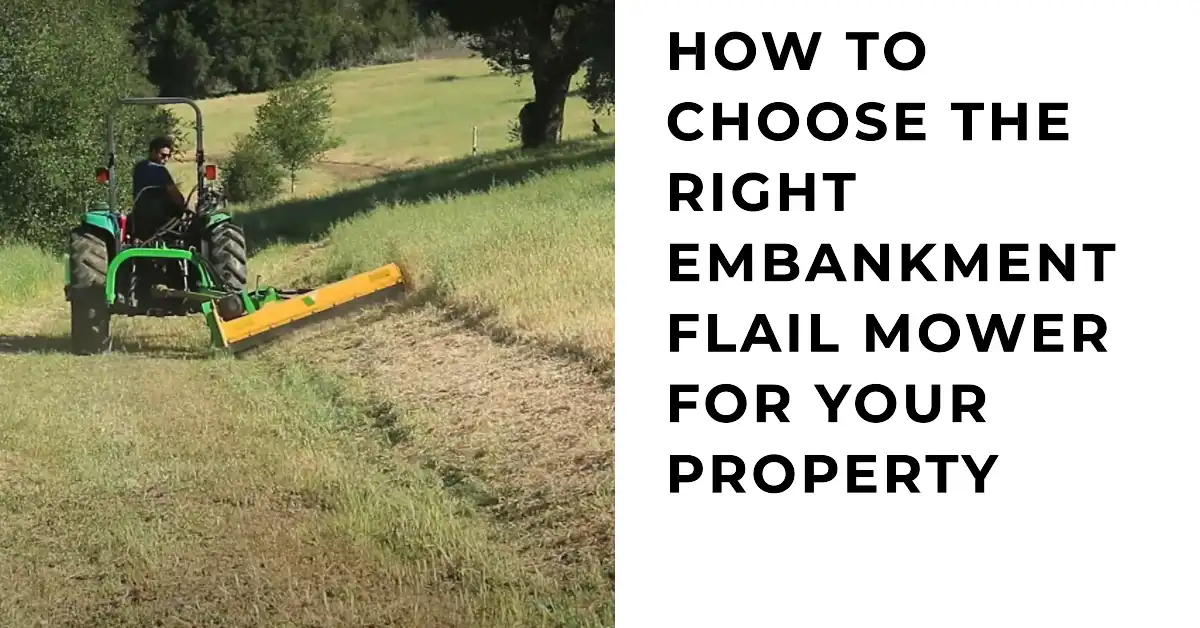
This image is property of etractorimplements.com.
Garden Tractors: What to Look for
Engine Power and Performance
Garden tractors are typically equipped with more powerful engines than riding mowers, allowing them to handle a variety of tasks beyond just mowing. Consider the horsepower and torque ratings when selecting a garden tractor, as this will determine its ability to perform the various tasks you require.
Attachments and Accessories
One of the main advantages of garden tractors is their compatibility with a wide range of attachments and accessories. Determine the specific tasks you want to accomplish on your farm, such as plowing, tilling, or hauling, and choose a tractor that offers the necessary attachment options. Common attachments include snow blowers, front-end loaders, and aerators.
Versatility and Maneuverability
Garden tractors should be versatile enough to handle various terrains and maneuver through tight spaces. Look for tractors with adjustable cutting heights, differential locking capabilities, and easy-to-use steering systems. Ensure that the tractor can handle your farm’s unique terrain and provide the agility you need to navigate around obstacles.
Durability and Maintenance
As garden tractors are designed for heavy-duty tasks, durability is a crucial factor to consider. Look for models with sturdy construction, reliable components, and a reputation for longevity. Additionally, consider the maintenance requirements of the tractor, such as oil changes and parts replacement, to ensure that it is manageable for your farm’s maintenance routine.
Analyzing Push Lawn Mowers
Main Types of Push Lawn Mowers
Push mowers come in various types, including manual reel mowers, gas-powered mowers, and electric mowers. Manual reel mowers are operated by pushing them manually, while gas-powered and electric mowers utilize engines for easier operation. Consider the terrain, size, and maintenance requirements of your farm when choosing between these different types.
Cutting Width
The cutting width of a push mower determines the width of grass that can be cut with each pass. A wider cutting width allows for more efficient mowing, as it reduces the number of passes required to cover your farm. However, larger cutting widths may make the mower heavier and less maneuverable, which can be problematic on uneven terrain or tight spaces.
Wheel and Height Adjustments
Look for push mowers that offer adjustable wheel heights and cutting heights. Adjustable wheel heights allow you to adapt to different terrains, ensuring an even cut across your farm. Additionally, consider the ease of adjusting these settings, as it can impact the overall usability and convenience of the mower.
Handling and Storage
Push mowers should be easy to handle and maneuver, especially if you have a smaller farm or limited storage space. Look for features such as ergonomic handles and lightweight designs, which can make the mower easier to push and control. Consider the storage requirements of the mower, as some models may fold down or have a compact design for space-saving convenience.
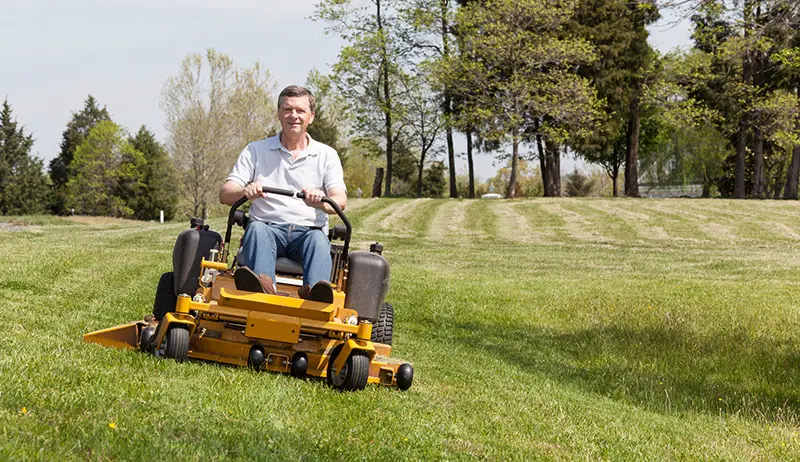
This image is property of img.hobbyfarms.com.
Specialist Mowers for Specific Purposes
Flail Mowers for Rough Terrains
Flail mowers are heavy-duty machines designed for rough terrains and overgrown areas. They feature vertically rotating blades that can handle thick vegetation, including small trees and shrubs. Flail mowers are an excellent choice for farms with large areas of rugged land that require clearing or maintenance.
Sickle Bar Mowers for Thick Vegetation
Sickle bar mowers are specifically designed to tackle thick vegetation, such as tall grass or brush. They utilize a reciprocating blade that moves back and forth, cutting the vegetation cleanly with each stroke. Sickle bar mowers are ideal for farms with large sections of land that require mowing and clearing of dense vegetation.
Rotary Mowers for Pastures and Fields
Rotary mowers are versatile machines commonly used for maintaining pastures and fields. They feature a horizontal rotating blade that cuts the grass or vegetation in a sweeping motion. Rotary mowers are available in various sizes and can be attached to different vehicles, such as tractors or ATVs, making them suitable for farms of all sizes.
Finishing Mowers for a Neat Appearance
Finishing mowers are designed to provide a clean, manicured look to your farm’s grassy areas. They have multiple blades that create a precise and even cut, leaving behind a well-groomed finish. Finishing mowers are commonly used on lawns, sports fields, or any areas where aesthetics are important.
Factors to Keep in Mind for Versatility
Interchangeable Attachments
When considering a mower for versatility, look for models that offer interchangeable attachments. This allows you to expand the functionality of the mower and perform various tasks beyond just mowing. Attachments like baggers, aerators, dethatchers, or tillers can significantly enhance the versatility of your mower.
Compatibility with Implements
In addition to attachments, consider the compatibility of the mower with other farm implements. Some mowers can be used as a base for attaching implements such as spreaders, sprayers, and carts. This versatility allows you to accomplish multiple tasks, such as fertilizing, seeding, or hauling, with a single machine.
Ease of Transition
Versatile mowers should offer easy and quick transition between different modes or attachments. Look for models with simple attachment systems, intuitive controls, and hassle-free switching mechanisms. The ease of transition should also include user-friendly adjustments for cutting height, speed, and operational features specific to each task.
Multi-Purpose Functionality
Ultimately, versatility depends on the mower’s ability to perform multiple tasks proficiently. Consider the specific tasks you need to complete on your farm and choose a mower that excels in those areas. Balance the mower’s capabilities with your requirements to ensure it can effectively handle the various chores you face.
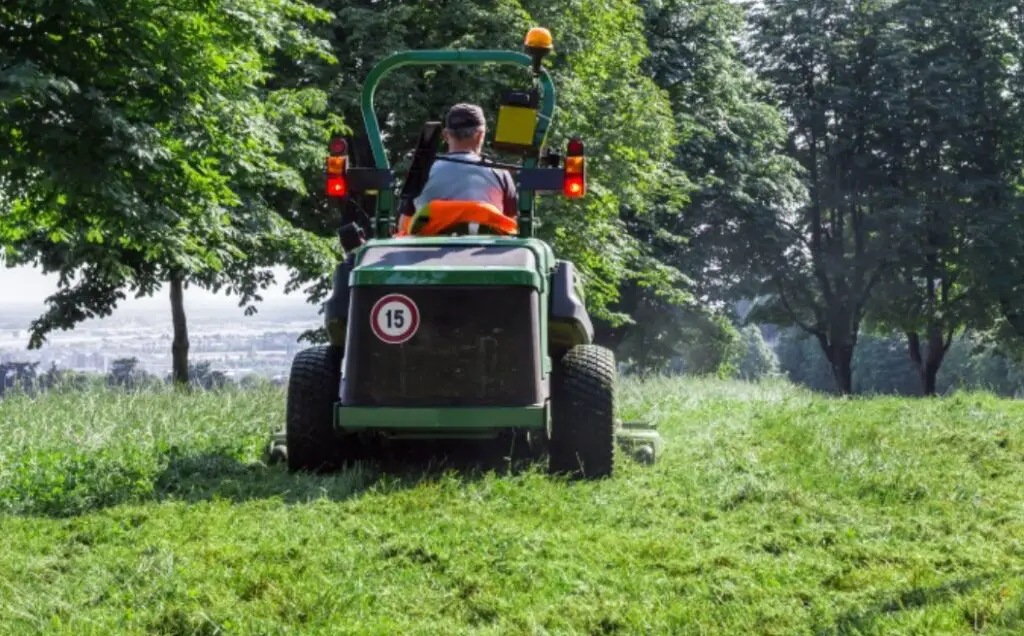
This image is property of blacksoldierflyfarming.com.
Comparing the Costs
Initial Purchase Cost
When comparing the costs of different types of mowers, take into account the initial purchase cost. The price range can vary significantly depending on the brand, model, and features of each mower. Consider your budget and prioritize the features that are most essential for your farm before making a decision.
Maintenance and Upkeep Expenses
Mowers require regular maintenance and upkeep to perform optimally and extend their lifespan. Consider the maintenance requirements and associated costs when evaluating different mower options. Factors to consider include the frequency of oil changes, blade sharpening, and other routine maintenance tasks. Additionally, inquire about any warranties offered for maintenance or repairs.
Fuel Consumption
The fuel consumption of a mower can impact the long-term costs of operating and maintaining your farm. Gasoline-powered mowers typically have higher fuel consumption compared to electric models. Consider the availability and cost of fuel in your area, as well as any environmental considerations related to emissions and noise pollution.
Replacement Part Availability
Another cost consideration is the availability and cost of replacement parts. Over time, certain components of the mower may need to be replaced due to wear and tear or accidental damage. Research the availability, cost, and ease of obtaining replacement parts for the specific mower models you are considering. This will help ensure that you can keep your mower in optimal condition without incurring excessive expenses.
Brands and Models to Consider
Popular Lawn Mower Brands
When selecting a mower for your farm, it’s worth considering reputable brands that have a track record of producing reliable and durable machines. Popular lawn mower brands include John Deere, Husqvarna, Cub Cadet, Toro, and Craftsman. These brands have established themselves as leaders in the industry and offer a wide range of models suitable for different farm sizes and needs.
Top Models for Farm Use
Within each brand, there are specific models that excel in farm use. Some highly regarded models include the John Deere X300 series, the Husqvarna YTH24V54, the Cub Cadet XT1 Enduro series, and the Toro TimeCutter series. These models are known for their durability, performance, and versatility, making them popular choices among farmers.
Customer Reviews and Ratings
Before making a final decision, it’s beneficial to read customer reviews and ratings of the specific lawn mower models you are considering. Real-life experiences from other farmers can provide valuable insights into the performance, reliability, and overall satisfaction with the mower. Pay attention to both positive and negative reviews to have a balanced understanding of each model’s strengths and weaknesses.
Warranty and Support
Lastly, consider the warranty and support offered by the manufacturer. A comprehensive warranty can provide peace of mind and protect your investment in case of any defects or issues. Additionally, look for manufacturers that offer reliable customer support, including readily available spare parts and repair services. Quick and responsive support can greatly enhance your overall ownership experience.
Choosing the right type of mower for your farm is a crucial decision that can greatly impact the effectiveness and efficiency of your land maintenance. By assessing the size and terrain of your farm, considering the various mower types, and evaluating factors such as power source, cutting width, and maneuverability, you can select a mower that meets your unique needs. Always research different brands and models, read customer reviews, and compare costs to make an informed choice. With the right mower, farm maintenance will become a breeze, allowing you to enjoy a well-maintained and beautiful farm environment.
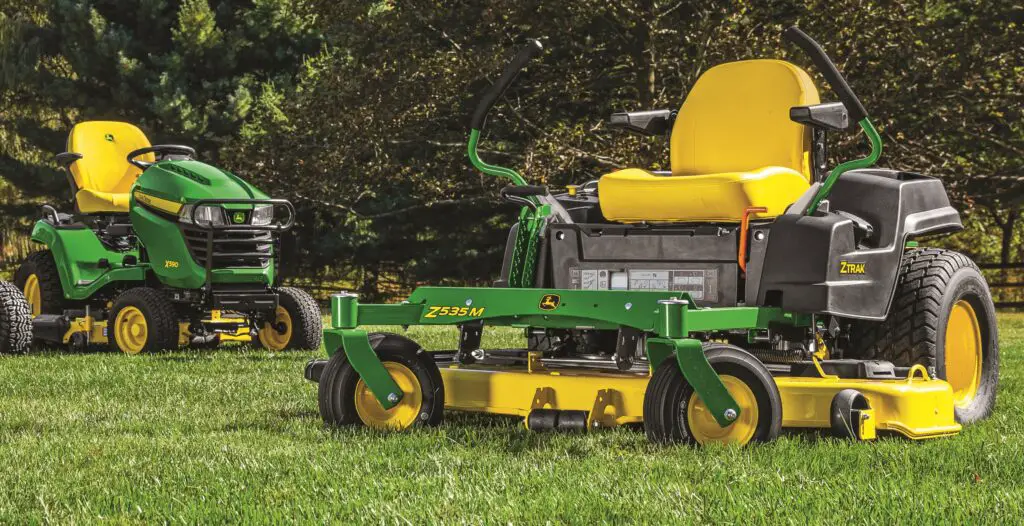
This image is property of www.koenigequipment.com.
This post may contain affiliate links which means I may receive a commission for purchases made through links. Learn more on my Private Policy page.

